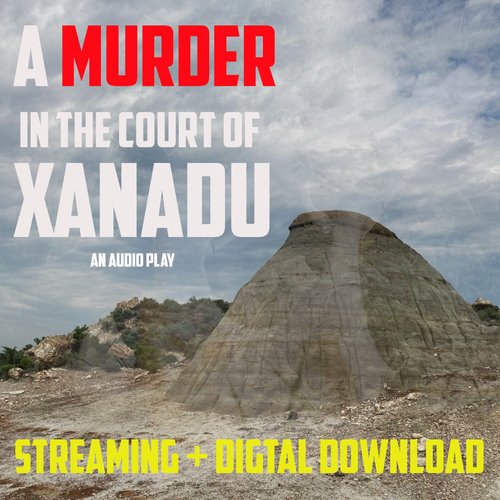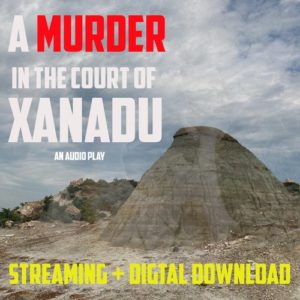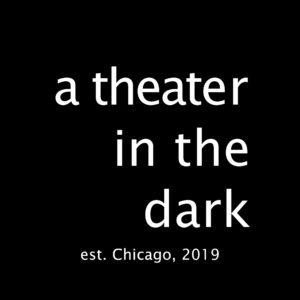
 [rating=2]What happens when Shakespeare’s tale of “Julius Caesar”, with its focus on murder and insurrection, is set in the era of Kublai Khan? What if the tale of “Richard III” takes place in a corporate setting, where the ruthless aspirant is constantly figuring out ways to claw his way to the top by playing a mean game of office politics, often involving death and exile (i.e., a job transfer overseas)? What about the possibility that ghosts are real, as in “Macbeth”, and that they might choose to avenge a foul murder?” All these elements can be found in “A Murder in the Court of Xanadu”, an original audio play by writer and director Corey Bradberry. In an online radio-like broadcast over the internet, he weaves a tale of murder and mayhem and shows us how the desire for control and influence can feed an ever-bloodthirsty ambition. In the story, the governing elite of the mythical country of Xanadu is merged with the worldwide reach of a family-owned multinational corporation like Walmart. The use of physical violence, intimidation, and intrigue thus allows Ahmad (Gabriel Fries) to gradually wrest power and wealth away from the company’s owner the Mighty Kane (Robinson J. Cyprian) in a manner far more interesting than the unceremonious hirings and firings that typically take place within corporate bureaucracy. Integrating ancient history and aspects of 21st century life is interesting, clever, and fun. But while the promise of this story is great, it falls flat as time goes on.
[rating=2]What happens when Shakespeare’s tale of “Julius Caesar”, with its focus on murder and insurrection, is set in the era of Kublai Khan? What if the tale of “Richard III” takes place in a corporate setting, where the ruthless aspirant is constantly figuring out ways to claw his way to the top by playing a mean game of office politics, often involving death and exile (i.e., a job transfer overseas)? What about the possibility that ghosts are real, as in “Macbeth”, and that they might choose to avenge a foul murder?” All these elements can be found in “A Murder in the Court of Xanadu”, an original audio play by writer and director Corey Bradberry. In an online radio-like broadcast over the internet, he weaves a tale of murder and mayhem and shows us how the desire for control and influence can feed an ever-bloodthirsty ambition. In the story, the governing elite of the mythical country of Xanadu is merged with the worldwide reach of a family-owned multinational corporation like Walmart. The use of physical violence, intimidation, and intrigue thus allows Ahmad (Gabriel Fries) to gradually wrest power and wealth away from the company’s owner the Mighty Kane (Robinson J. Cyprian) in a manner far more interesting than the unceremonious hirings and firings that typically take place within corporate bureaucracy. Integrating ancient history and aspects of 21st century life is interesting, clever, and fun. But while the promise of this story is great, it falls flat as time goes on.
Ahmad, who is a Muslim, is the financial whiz behind Xanadu, an empire/corporation that is owned by Kane, who is nominally Christian. Impressed by trinkets, Kane has largely fallen into a pattern of drinking and self-destruction and has failed to see the bigger picture; namely, that Ahmad, who is wise with the books, is becoming more and more wealthy and powerful—is thus becoming a threat to Kane’s prosperous family business. With his focus mostly being on himself and the prospects of his son JinGin, Kane has decided that his son should be heir to the business secrets of the corporation and not Ahmad. However, at the beginning of the second act, JinGin dies, apparently from a bullet wound. But the murderer is never caught. Ahmad has also figured out how to dispose of his rival Byyon (Van Ferro), and now it’s on to targeting Kane himself. “Why destroy the thing that gave me life?” asks Ahmad of himself. As for the answer, saying anything beyond this point would ruin the plot and the plot twists of this suspenseful presentation.
Bolstered by Bradberry’s heavy reliance on iambic pentameter, this production is creative in its uses of language. Much of the time, the imagery is fantastic. For example, one of my favorite lines from the performance is this one: “There goes a war hero subdued as easy as a mouse caulked with glue.” With its constant overlay of modern references over classical themes, the story keeps us thinking about lines such as these: “I alone can fix it.”
I would have liked the show a lot more had the ending been better. Up to about fifteen minutes before the end, I would have given this show a “recommended.” But it descends into a morass; for me, things fell apart. After all of the plotting and scheming that captured my attention, the end seemed too much like, “Well, I don’t know how to end this tale, so—oh, well!” In fact, Marla, the narrator (Erin Lin) addresses this issue by saying to the listening audience, “I know what you’re thinking, ‘Marla, there was no build-up.’ But this is how it happened.” Other characters include Kane’s executive assistant Marigold (Nessa Amherst) and her husband Wan Chu (Van Ferro). I loved the music by Paul Sottnik. It sets the perfect mood and provides a wonderful ambiance for this show. Note that the inspiration for Kane was Kublai Khan, whereas Marco Polo was the inspiration for the narrator Marla.
This story shows us how, throughout history, evil can be in the hearts of men. It can be a motivator for action, while at the same time, many try hard to disguise it or to make it digestible. I especially found the seeming banality of corporate greed in the modern era to be a very interesting focus, and the structure of the story initially reminded me of a tragedy, taken right out of Plutarch’s (parallel) “Lives.” Unfortunately, the tale as told by Bradberry doesn’t clear the high bar of successfully applying Shakespeare’s insights on the essence of human nature to what is happening in the present day. Although Ahmad’s plot to gain wealth at Kane’s expense is eventually uncovered, the audience no longer cares by the end. What a disappointment!
A Theater in the Dark’s “A Murder in the Court of Xanadu” is an online broadcast, available to the public for streaming beginning November 3 at https://www.theatreinthedark.com/.
Price – $12.99 to receive both a digital download and online streaming access to the recording.
Season Passes $30.00; Monthly Patron subscriptions $3.25 per month
To see what others are saying, visit www.theatreinchicago.com
go to Review Round-Up and click at “A Murder in the Court of Xanadu”






More Stories
“The Firebugs” reviewed by Julia W. Rath
“The Book of Grace” Al Bresloff with another from Paul LIsnek
“The Last Five Years” MILWAUKEE